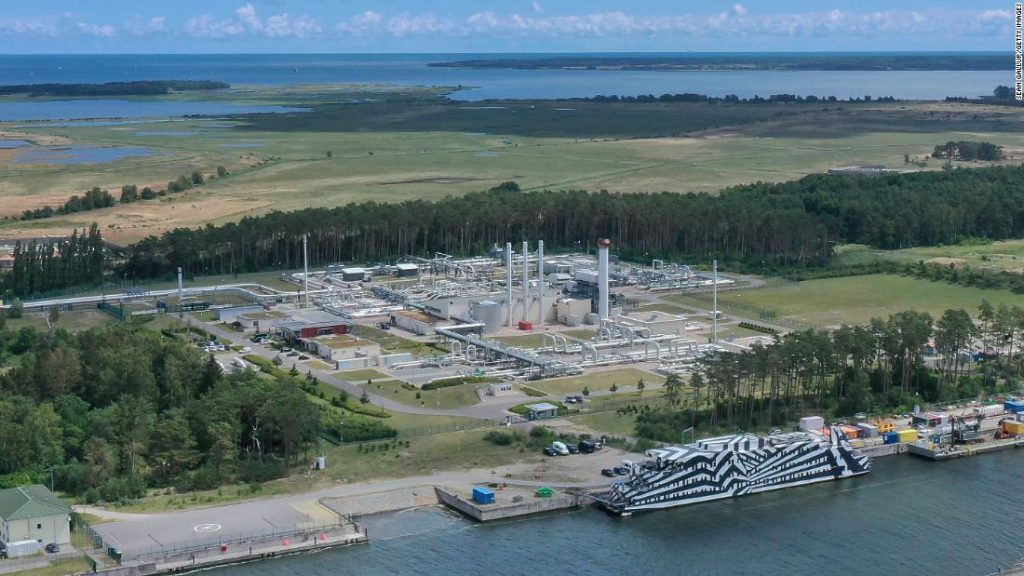
Robert Habeck, Germany’s economy minister, said earlier this month that the country should “prepare for the worst”.
“Anything can happen,” Habeck said in a radio interview. “The gas can flow again more than before. Nothing can come at all.”
The pipeline transports 55 billion cubic meters of gas annually to Europe, or about 40% of the total pipeline imports from Russia.
Gazprom blamed the move on the West’s decision to block vital turbines due to sanctions.
German gas distributor Uniper confirmed on Monday that it had received a letter from Gazprom claiming force majeure on past and current gas delivery shortfalls. Force majeure is a clause in the contract that justifies the company for not fulfilling its obligations. It is usually invoked in extreme circumstances such as natural disasters.
But a Uniper spokesperson told CNN it “formally rejected” the claim. On Monday, the embattled company also withdrew a 2 billion euro ($2.04 billion) credit facility from KfW Bank due to the impact of the Russian gas supply disruptions.
terrible timing
The high temperatures increased the demand for electricity to operate the air conditioning units. Enagas, the operator of Spain’s gas transmission system, said last week that demand for natural gas for electricity production hit a new record high of 800 gigawatt-hours.
“This huge increase in demand for natural gas to produce electricity is mainly due to the high temperatures recorded as a result of the heat wave,” Enagas said in a press statement last Thursday.
Some analysts were more optimistic, given the alternative energy sources in Europe and the fact that the heat wave will be over by midweek.
“Although energy consumption in the European Union will be a little higher this week in the heat wave due to higher usage rates for air conditioning units, this will be offset by a record supply of solar power generation,” Henning Gloesten, director of energy, climate and resources at Eurasia Group, told CNN. Business.
Meanwhile, European countries are racing to fill their gas storage facilities to avoid a potentially catastrophic power shortage during the winter.
Fatih Birol, executive director of the International Energy Agency, said in a press release on Monday that the “next few months will be critical” to support the bloc’s supply.
“If Russia decides to completely cut off gas supplies before Europe can raise its storage levels to 90%, the situation will be more dangerous and challenging,” he added.
Gas storage levels across the European Union are currently around 64%, according to Gas Infrastructure Europe.
The union is urgently securing gas supplies from other countries as it reduces Russian gas imports. On Monday, the European Commission signed a memorandum of understanding with Azerbaijan to double the capacity of the main gas delivery route over the next few years.
Prices for Dutch natural gas, the European standard, rose 3% to 165 euros ($167) per megawatt-hour on Monday from Friday, according to data from the Intercontinental Exchange.
– Julia Horowitz, Sharon Brown Peter, Sharon Braithwaite, and Chris Liakos contributed to the report.




More Stories
JPMorgan expects the Fed to cut its benchmark interest rate by 100 basis points this year
Shares of AI chip giant Nvidia fall despite record $30 billion in sales
Nasdaq falls as investors await Nvidia earnings